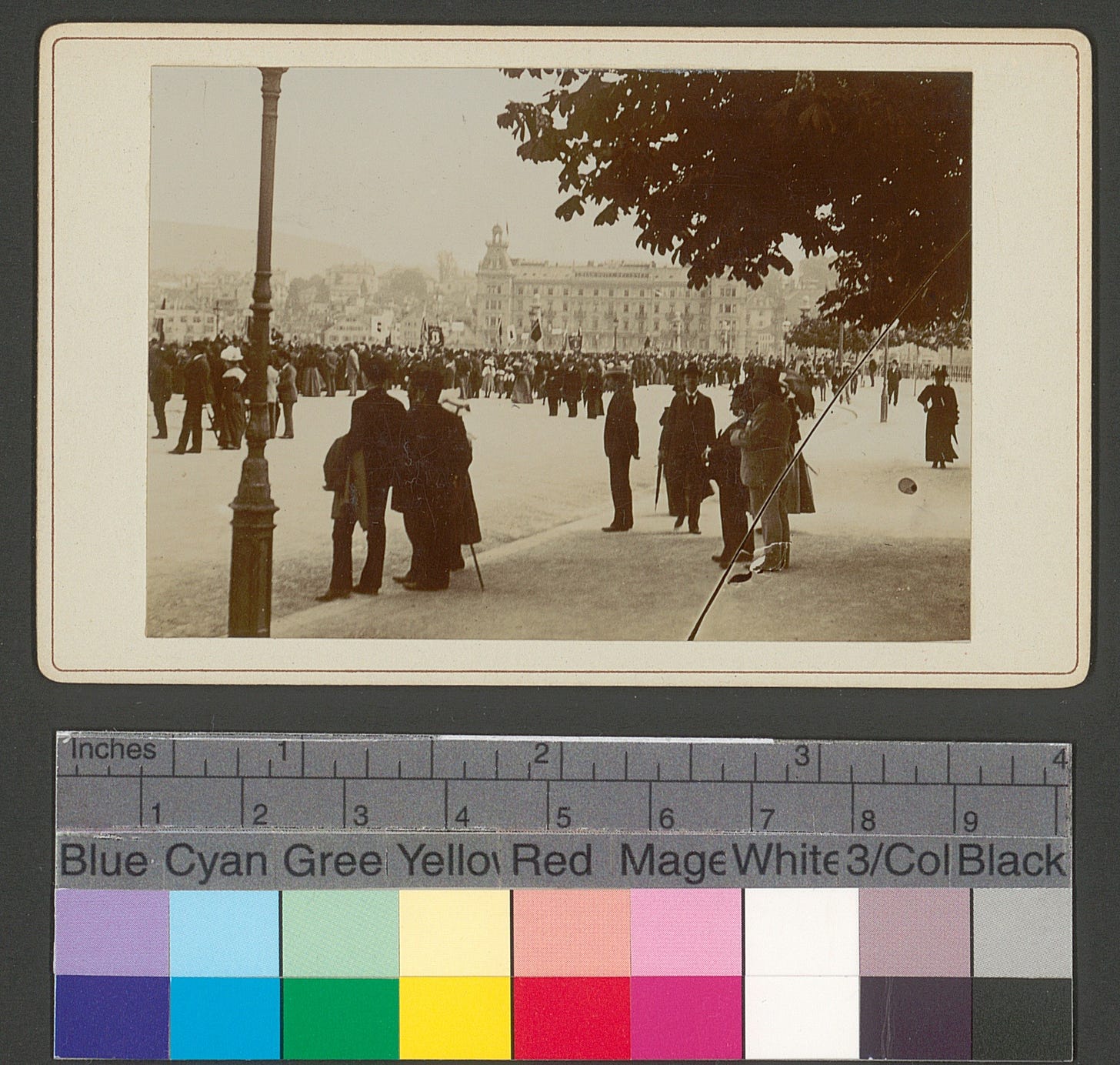The Crowd

There is always a moment, when standing in a crowd, in which the press of bodies turns diffuse, oddly amorphous; the individual obscured by this mass of flesh. Anonymous, these bodies move together, they are forced to walk forward together; it is only at the crowd’s very edges that one can finally break and splinter off. This is, Elias Canetti observes early on in Crowds and Power, one of the pleasures of the crowd, “perhaps one of the reasons why a crowd seeks to close in on itself: it wants to rid each individual as completely as possible of the fear of being touched.”
When this happened to me a few weeks ago at the No Kings protest in New York—this transitional moment, when the singular becomes many and multiple—I had to hold my breath to prevent from panicking. There were so many people surrounding me—I was walking alone—that at one point it took us forty minutes to make it down one city block. I was happy to see it, this crowd; I was also highly aware, as though peering at myself through the outside of a window, of the minute that it happened, that moment when the crowd clotted and formed, overwhelming me. Its power, the potential coil of it. And the danger, too.
*
In Athens a week and a half ago, tourists milled over the top of Pnyx, the hill where Pericles once gave speeches to the small group of citizens—men—who could participate in the city-state’s early form of direct democracy. As I looked over them, the rocks, the sweep of browned grass and the Acropolis distant in the air, I wondered what he sounded like. Pericles, and the others like him. A crowd is an unruly beast, it takes stamina to get the crowd to listen—and his voice, echoing? —How did it sound?
For years, tourists and the phenomenon of tourism have fascinated me. “Tourism,” I once wrote in a short story about an American woman who idly joins a tour group in the Financial District following a bad medical diagnosis, “is the most benign form of exile.” I feel the most myself in an airport, ready to depart. A swath of tourists exists as a particular form of the crowd; disconnected, purposefully, from their familiar surroundings, they are nonetheless ready to connect.
They are the most soothing to me, these curious bodies clustered on the hill.
*
Last week, a review I wrote for the Los Angeles Review of Books came out, about Caleb Femi’s recent poetry collection The Wickedest and a different sort of crowd: that of the party.
A CERTAIN NERVOUSNESS—the jittery jangle of high expectations. The host or hostess worries whether anyone will show up. Guests ready themselves before the mirror. Wonder if they’ll know anyone there. Moments before the long night’s beginning, a hundred possibilities stand open: here is a portal into another dimension, a chance to step inside a parallel universe comprised purely of sociability. A room filled with people talking. People dancing.
A party takes the shape of those who enter it, itself a character with a personality composed of chance, place, the crowd (so different from one you might encounter on the street). In literature, parties often serve as a narrative excuse: for characters to bump and converge into one another, for plot points to get underway or hurry up. “Parties,” the poet Elisa Gabbert observed in a 2019 essay on the subject, “are about the collective gaze, the ability to be seen from all angles, panoramically.” In other words: They’re a fishbowl. There is a certain glamour associated with seeing and being seen from all angles, the ephemerality of the experience. For one night, for a few hours (a few pages), you might meet someone new. Beneath the room’s collective gaze, you might become a different version of yourself—you could become part of the story too.
It is this sense of possibility, of escape and shifting identity, that is the subject of the Nigerian British poet Caleb Femi’s thrillingly panoramic new book of poetry, The Wickedest. Named after a fictional underground house party in London, Femi’s collection darts and dances in and out of the viewpoints of the party’s attendees, enlisting his readers on a communal journey beginning at 10:45 p.m. and ending at 4:45 in the morning. The result is multifaceted and polyphonous in its scope: the voices and experiences of The Wickedest’s guests—their personalities and politics—are pinned down in this single, distinct moment, producing an arc and satisfaction akin to that of a short story.
You can read more here.

I really enjoyed your LARB review!!! Especially how you pulled together all these club-culture-y books and albums into a timeline.
It does feel like, in the past 5 years, basically every big-city millennial and zoomer started going to Nowadays and gossiping about DJs…there is some intense draw to the particular crowd experience of the dance floor, and the particular immersion/escapism that's not possible elsewhere
“Tourism is the most benign form of exile.” is a banger